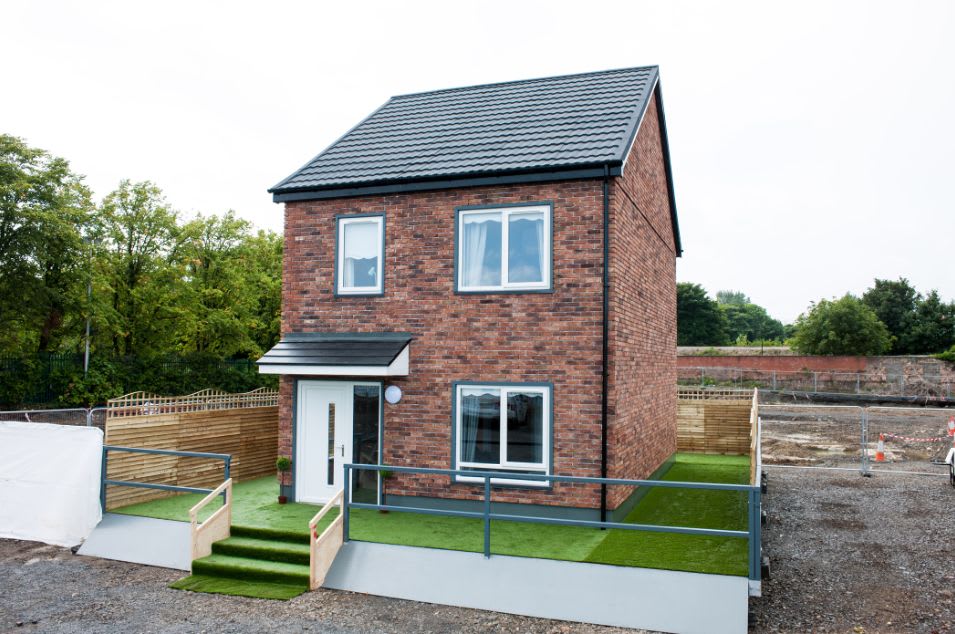An offsite construction firm has unveiled a prototype of a house that it claims can be assembled on site in just one day.
The McAvoy Group has developed the house at its factory in Lisburn in Northern Ireland to showcase the potential of its new modular housing solution.
The light gauge steel-framed building system can be used to construct both multi-storey apartments and houses in a variety of configurations. The company claims it is suitable for affordable homes for rent, shared ownership, market sale, build-to-rent, student accommodation and emergency housing.
It has been designed and engineered in collaboration with Queen’s University Belfast and Todd Architects and can be finished in render, brick, composite panels, timber or stone cladding.
The house uses a floor construction created from recycled material, instead of concrete, while the company claims it offers excellent thermal performance and acoustic properties. The firm said the material was so innovative that it has been required to sign a confidentiality agreement in order to use it and couldn’t offer further details about what it contains.

The house has been designed with a new lifting system to facilitate its installation
The roof module is pre-tiled in the factory, while there is also a new lifting system with specially designed load-bearing brackets to facilitate installation on site.
The 95m2 prototype house has been developed for the affordable homes sector, providing three bedrooms and two bathrooms constructed in four steel-framed modules and two pre-tiled roof units. It is designed to Lifetime Homes standards and features an accessible bathroom and provision for a platform lift.
The system is certified by BOPAS with a design life of at least 60 years.
David Clark, head of manufacturing and innovation at The McAvoy Group, said: “We wanted to give developers, housing providers and lenders the opportunity to see at first hand the quality of finish that we can construct in the factory.
“The prototype house was a critical part of our design and engineering programme, allowing us to test innovative new building techniques such as the lifting system and the floor construction – which has proved to be a high performance, highly sustainable and robust alternative to pre-installed concrete floors.”
“The team at Queen’s University Belfast worked with us on the project in a collaborative knowledge transfer partnership, providing input on testing and structural design. In return, we were able to give valuable industrial experience and the opportunity for academic research into new methods of construction to address the housing crisis.”












